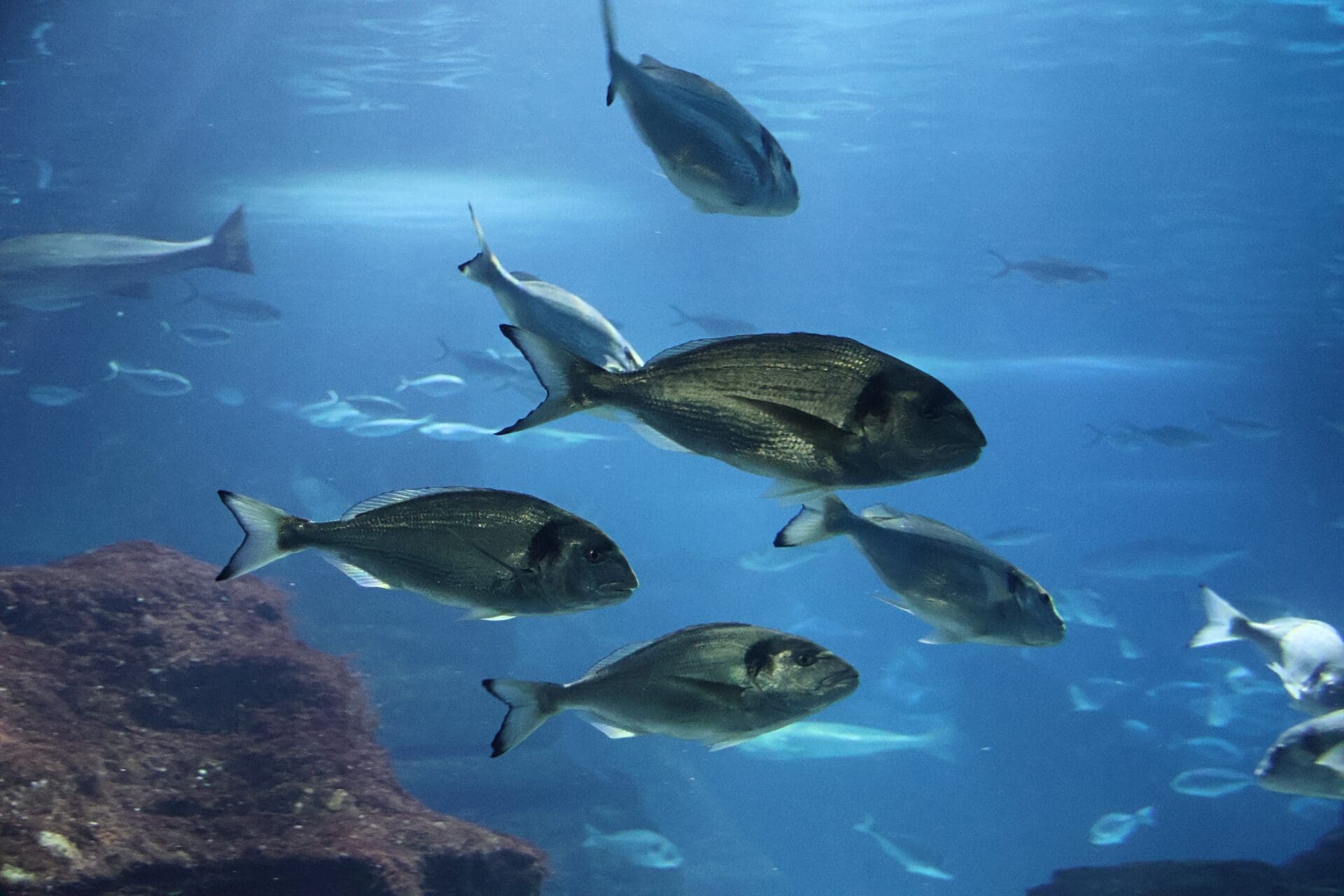
Within many living beings there is a whole ecosystem of microorganisms (bacteria, fungi, protozoa, etc.), mainly located in the intestinal tract, whose balance and good health decisively affect the health of the host organism. This is called the microbiota, and knowledge of it has been key to the development of new treatments for human health. But modulation of microbial communities can also be of great use in improving the health of livestock and aquaculture animals. One way of doing this is through the transplantation of faecal and intestinal microbiota, with the aim of providing the recipient organism with new functional capacities associated with microorganisms that it did not have until now.
In this context, a research group at IRTA set out to carry out the first transplantation of gut microbiota between two different fish species: Atlantic salmon (as donor) and sea bream (as recipient).

The aim of this trial, in addition to establishing a protocol for interspecific microbiota transplantation in fish, was also to reveal the influence of diet on the maintenance and incorporation of new microorganisms after transplantation. Thus, while one set of gilthead seabream continued to be fed with their usual diet, another group was fed with the feed of the donor salmon after transplantation. The results have underlined the importance of diet in defining the microbiota in the long term after this type of microbial transplantation.
In detail: at the end of the trial at 36 days post-transplantation, they observed that the microbial richness of gilthead seabream that had continued to be fed with their usual diet was still similar to that of the original gilthead seabream (before transplantation), and different from that of the donor salmon. Just the opposite occurred in the case of gilthead seabream that were fed the same diet as the salmon; at the end of the trial they had a microbial richness equal to that of the salmon and different from the original seabream. In addition, a clear differentiation in the richness and phylogenetic diversity of the microbiota of the post-transplantation gilthead seabream was observed as the days passed, depending on their diet.

Regarding the composition of the bacterial community, gilthead seabream fed with their typical diet after transplantation ended up having a microbiota with many bacterial taxa, present in the food they received, and in similar abundances, such as the probiotic genera Lactobacillus and Ligilactobacillus. Meanwhile, the sea bream that received the salmon feed adapted to the change brought about by the transplantation by generating a unique microbiome over time, with a progressive decrease in the relative abundances of the genera Photobacterium and Vibrio, and an increase in Escherichia-Shigella, Acinetobacter and Corynebacterium among others, compared to the fish of origin.
The results of this study tell us that, although gut microbiota transplantation is getting closer to being a viable strategy that will allow modulation of animal microbial communities on demand by aquaculturists and livestock producers for beneficial animal health purposes, certain key factors for its efficiency must also be considered, such as diet, which plays a fundamental role in the regulation of microbial communities after transplantation.
This study is part of the ADIPOQUIZ project, coordinated by IRTA’s Aquaculture programme and funded by the Spain Ministry of Science, Innovation and Universities. You can read the full article here:
Ruiz, A., Gisbert, E. & Andree, K.B. Impact of the diet in the gut microbiota after an inter-species microbial transplantation in fish. Sci Rep 14, 4007 (2024). https://doi.org/10.1038/s41598-024-54519-6


